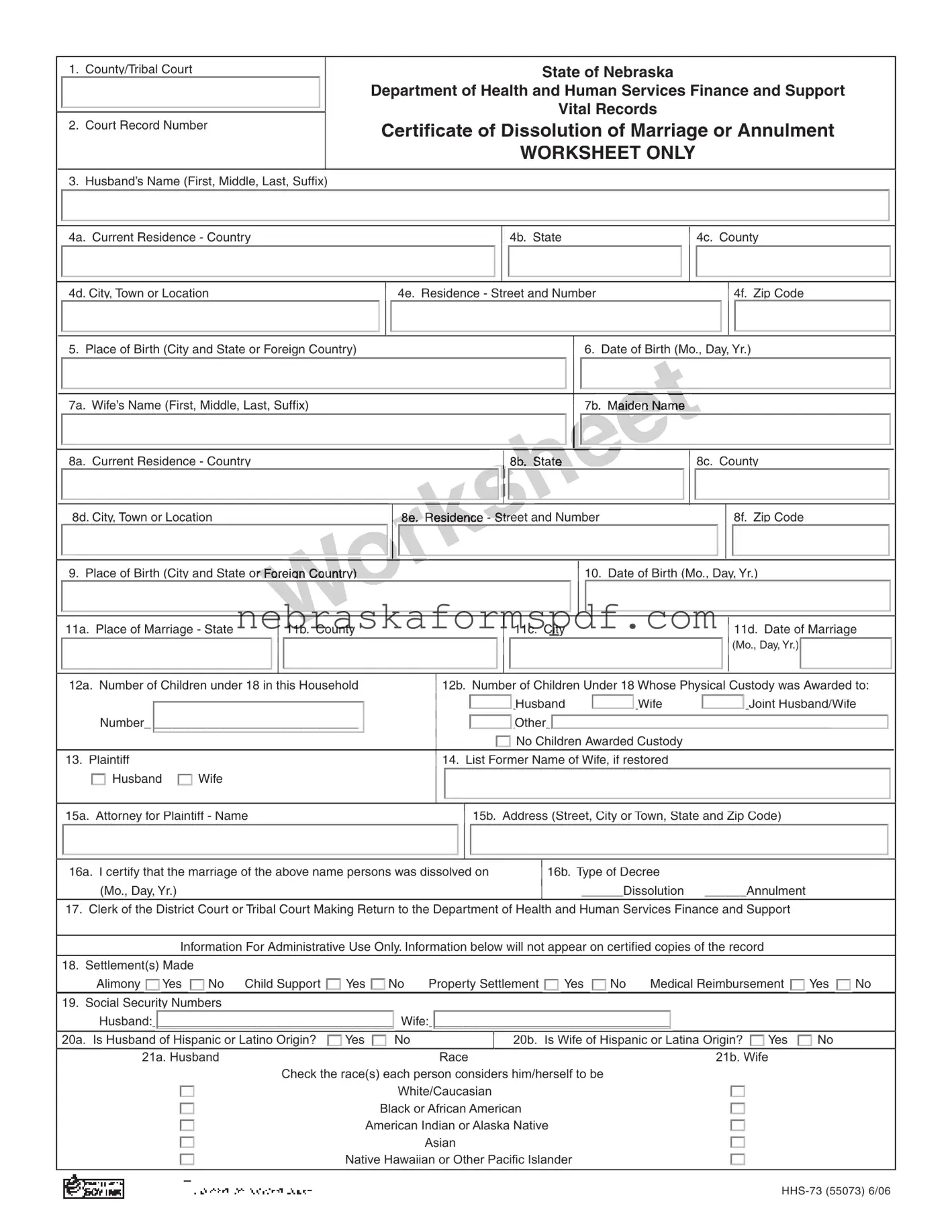The Nebraska HHS 73 form, also recognized as the Certificate of Dissolution of Marriage or Annulment Worksheet, is a document utilized by the Department of Health and Human Services Finance and Support in the State of Nebraska. It serves the essential purpose of recording the dissolution of a marriage or an annulment within the state. This form captures detailed information about both parties involved, such as their names, residences, places of birth, dates of birth, and specifics about their marriage and dissolution or annulment. It ensures that vital records are updated accordingly and facilitates the legal and statistical use of this data.
Individuals who are undergoing the legal process of marriage dissolution (divorce) or annulment in Nebraska must fill out the HHS 73 form. Specifically, this form is typically filled out by the court handling the case or the legal representatives of the parties involved. The information provided must accurately reflect the details of the marital dissolution or annulment as recognized by the Nebraska county or tribal court system.
To accurately complete the Nebraska HHS 73 form, a series of personal and legal details are required, including:
-
County or Tribal Court Information and Court Record Number.
-
Full names of both husband and wife, including the wife’s former name if restored.
-
Current residence details for both individuals.
-
Places of birth and dates of birth for both husband and wife.
-
Details about the marriage, such as place and date of marriage.
-
Information about children under 18, if applicable, and custody arrangements.
-
Details of the dissolution of marriage or annulment, including dates and types of decree.
-
Settlements made in relation to alimony, child support, property, and medical reimbursements.
-
Social Security numbers and ethnic backgrounds of both parties.
This information assists in the proper documentation and statistical analysis of marriage dissolutions or annulments.
After completing the Nebraska HHS 73 form, it should be submitted to the Clerk of the District Court or Tribal Court that is handling the dissolution or annulment case. The form is intended for administrative use by the Department of Health and Human Services Finance and Support and is not typically a document furnished by the individuals involved directly. It is the responsibility of the legal authorities or representatives to ensure its accurate completion and submission.
Failing to complete the HHS 73 form can result in an incomplete record of the marriage dissolution or annulment within the state's vital records. This may lead to legal complications for the individuals involved, such as issues with name changes, marital status updates, and difficulties in future legal proceedings related to marital status. Consequently, it could also hinder the accurate collection of statistical data regarding marriage and divorce in Nebraska.
Yes, while the primary purpose of the Nebraska HHS 73 form is to document the dissolution of marriages or annulments for vital records, the information provided can also be used for statistical analyses. Nonetheless, personal information such as Social Security numbers is specially protected and is not disclosed for public or unauthorized use. The data collected can help in understanding demographic trends and the social implications of marriage dissolutions within the state.





 Wife:
Wife: